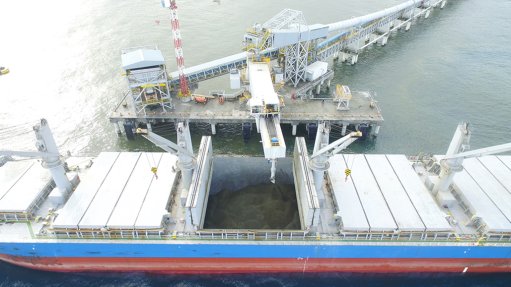Political party opposes proposed amendments



CREZANE BOSCH There is the chance that these overly restrictive policies might foster suspicion and tension, framing private security as a regulatory problem rather than a collaborative safety partner
VAGUE LIMITATIONS The vagueness of limits could result in operational uncertainty which could result in procurement delays and logistical challenges
Photo by The DA
In its opposition to the draft amendments to the Private Security Regulations, proposed by regulatory body the Private Security Industry Regulatory Authority last month, political party the Democratic Alliance (DA) states that the amendments “undermine the effectiveness, professionalism and operational capacity of private security providers”.
The amendments are “overly restrictive” and “vague” and could hamper the industry’s ability to respond effectively to security threats, jeopardising public safety, explains DA Gauteng shadow MEC for Community Safety Crezane Bosch.
The key aspects are the restrictions on the use of certain firearms, vague definitions of reasonable ammunition quantities, the requirement of costly firearm tracking devices and bans on non-lethal tools.
Bosch adds that the restrictions on firearms, specifically semi-automatic rifles, could significantly diminish tactical units’ response effectiveness.
“These restrictions could significantly impair the ability of private security firms to respond swiftly and effectively in high- risk environments. Limited access to appropriate firearms may reduce the capacity to deter or respond to violent incidents, potentially increasing vulnerability in places where security threats are prevalent.”
Moreover, the vagueness of the limits could result in operational uncertainty, delays in procurement and logistical challenges. Bosch adds that it may also result in security providers being unable to plan effectively, risking noncompliance, especially because of the vague timelines for complying with these amendments.
Further, the implementation of tracking devices involves substantial costs for hardware, installation and maintenance, which could disproportionately burden smaller providers.
“The DA contends that non-lethal tools are vital for de-escalation and crowd control, reducing the need for lethal force.”
Bosch further elaborates that the banning of such tools, such as rubber bullets, tasers, and water cannons, will remove critical options for private security and law enforcement to manage threats safely, potentially escalating violent situations.
She points out that the existing regulations already emphasise strict protocols, training and oversight for the use of non-lethal tools to ensure that they are deployed responsibly and ethically.
Meanwhile, the draft amendments are said to promote softer, non-lethal methods and community-based approaches.
However, critics argue that these alternatives may not be sufficient for high-threat scenarios, emphasising the need for a balanced approach that includes armed response options.
Call for Balance
Bosch says the proposed amendments could “add layers of bureaucratic complexity” that would make compliance more difficult and costly, consequently leading “to legal uncertainties and increased risk of noncompliance, discouraging legitimate operators and reducing service availability”.
It could also create barriers to entry and threaten the viability of smaller firms, leading to job losses, business closures, reduced employment opportunities and limited access to security services in underserved areas, she warns.
Further, the potential for these regulations to be perceived as overly restrictive or punitive could potentially hinder cooperation and trust between the industry and government agencies, weakening community safety efforts.
“There is the chance that these overly restrictive policies might foster suspicion and tension, framing private security as a regulatory problem rather than a collaborative safety partner.”
As such, the DA has called for a balance that will safeguard public safety without imposing unnecessary burdens that could stifle industry growth or reduce service quality.
The response to the amendments has been largely critical from industry stakeholders and the public, with many expressing concerns about operational feasibility and safety implications.
Bosch emphasises that the DA has actively encouraged stakeholders to submit objections and has observed a “noticeable uptick” in submissions prior to the deadline.
She concludes that “such sweeping changes risk unintended consequences, including industry collapse and reduced safety coverage. The DA advocates for meaningful consultation with all stakeholders to develop balanced regulations that enhance safety without stifling industry effectiveness”.
Article Enquiry
Email Article
Save Article
Feedback
To advertise email advertising@creamermedia.co.za or click here
Press Office
Announcements
What's On
Subscribe to improve your user experience...
Option 1 (equivalent of R125 a month):
Receive a weekly copy of Creamer Media's Engineering News & Mining Weekly magazine
(print copy for those in South Africa and e-magazine for those outside of South Africa)
Receive daily email newsletters
Access to full search results
Access archive of magazine back copies
Access to Projects in Progress
Access to ONE Research Report of your choice in PDF format
Option 2 (equivalent of R375 a month):
All benefits from Option 1
PLUS
Access to Creamer Media's Research Channel Africa for ALL Research Reports, in PDF format, on various industrial and mining sectors
including Electricity; Water; Energy Transition; Hydrogen; Roads, Rail and Ports; Coal; Gold; Platinum; Battery Metals; etc.
Already a subscriber?
Forgotten your password?
Receive weekly copy of Creamer Media's Engineering News & Mining Weekly magazine (print copy for those in South Africa and e-magazine for those outside of South Africa)
➕
Recieve daily email newsletters
➕
Access to full search results
➕
Access archive of magazine back copies
➕
Access to Projects in Progress
➕
Access to ONE Research Report of your choice in PDF format
RESEARCH CHANNEL AFRICA
R4500 (equivalent of R375 a month)
SUBSCRIBEAll benefits from Option 1
➕
Access to Creamer Media's Research Channel Africa for ALL Research Reports on various industrial and mining sectors, in PDF format, including on:
Electricity
➕
Water
➕
Energy Transition
➕
Hydrogen
➕
Roads, Rail and Ports
➕
Coal
➕
Gold
➕
Platinum
➕
Battery Metals
➕
etc.
Receive all benefits from Option 1 or Option 2 delivered to numerous people at your company
➕
Multiple User names and Passwords for simultaneous log-ins
➕
Intranet integration access to all in your organisation




















